Sourdough Pie Crust
Sourdough Pie Crust, where have you been all my life? This pie crust is tender, flaky and tastes amazing. This just might become your go-to pie crust recipe. This recipe uses an entire cup of sourdough discard.
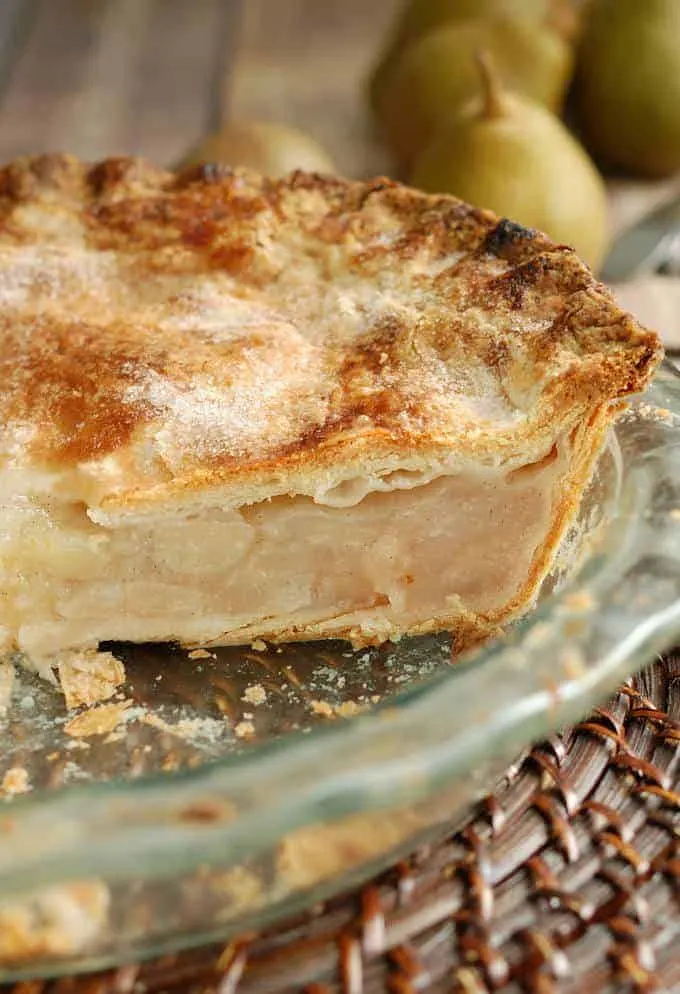
If you’re a sourdough-bread baker, you know how painful it is to throw away a whole cup of hard-earned yeasty goodness every time you need to replenish your starter. This recipe is a great way to use that discard to make an incredible pie crust.
If you don’t already have one, I can show you how to make a sourdough starter and how to feed a sourdough starter.
Why Sourdough Pie Crust is so good:
- Sourdough discard does amazing things for the flavor and texture of a basic flaky pie dough.
- Sourdough starter is acidic. Acidic ingredients tenderize gluten. Sourdough discard helps keep this pie crust tender.
- As the crust bakes there is a tiny bit of lift from the natural yeast in the sourdough starter. I find that lift helps make the crust even flakier as the air pockets in the dough poof up a bit and separate the layers of dough.
- Sourdough Pie Crust smells amazing as it’s baking in the oven. The yeasty, bready smell is totally tempting.
Ingredients
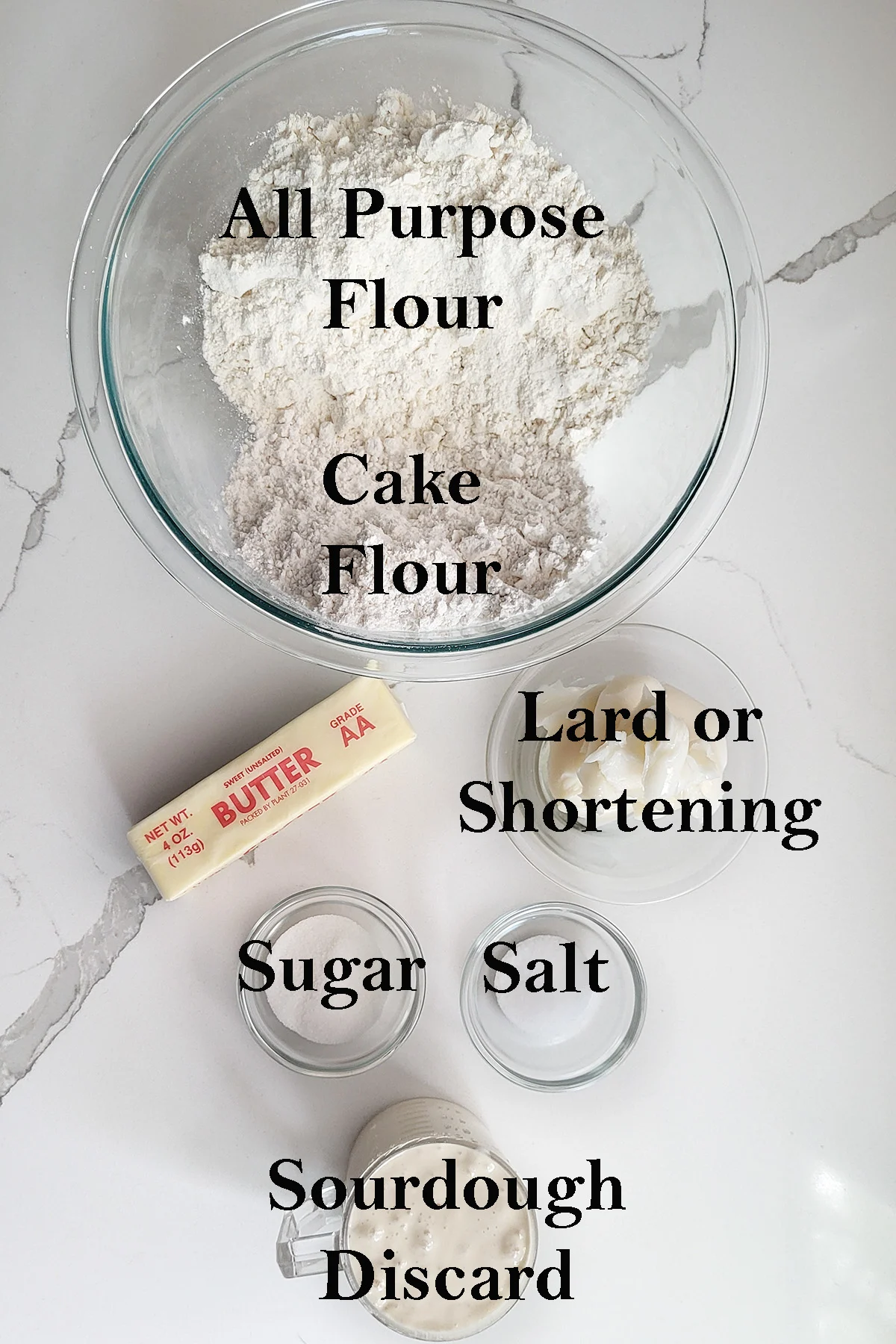
Ingredient Notes
- Flour – This recipe uses a mixture of all purpose and cake flour. All purpose flour will give the dough enough structure so it can hold the flaky texture and a small proportion of cake flour will help keep it tender. In a pinch, you can use bleached AP flour and get good results.
- Fat – I like to use a mixture of half vegetable shortening and half butter. The vegetable shortening has a higher melting point and keeps the crust from slumping as it bakes. The butter is, well, delicious! You can use all vegetable shortening for a vegan pie crust or all butter if that’s your preference. I sometimes use leaf lard in my pie crust. If you have that available you can use it in place of the shortening.
- Sourdough Discard – This recipe was developed using a 100% hydration starter. That means the starter is fed with equal weights of starter, flour and water. You may need to adjust the amount of starter in the recipe based on the moisture level of your starter.
How to make Sourdough Pie Crust
Here’s what the recipe process looks like at each stage. Refer to the recipe card below for measurements and exact instructions.
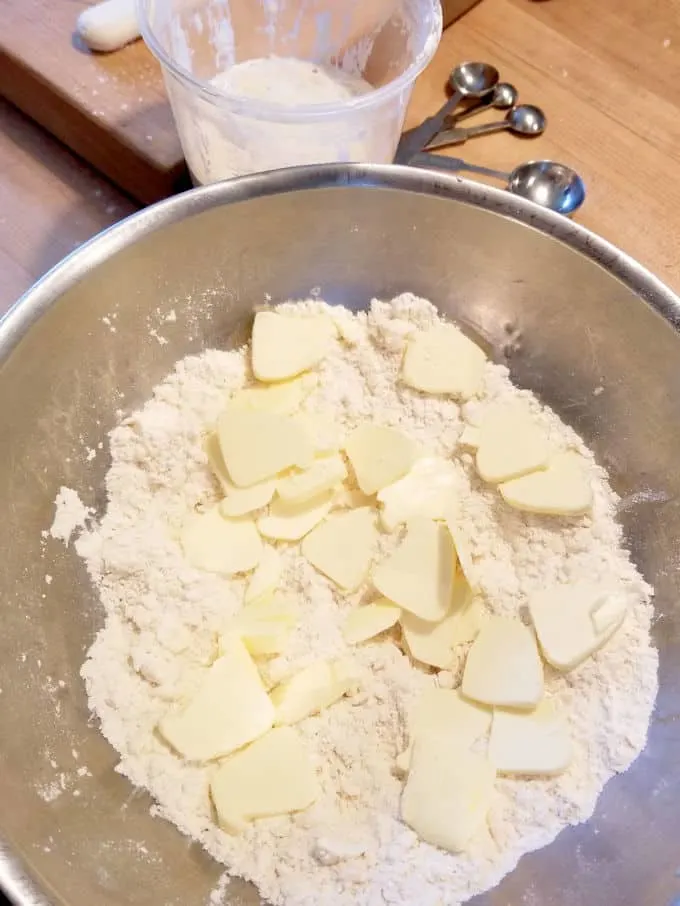
- Mix the fat in two stages.
- First mix in the shortening, then toss in the slices of cold butter.
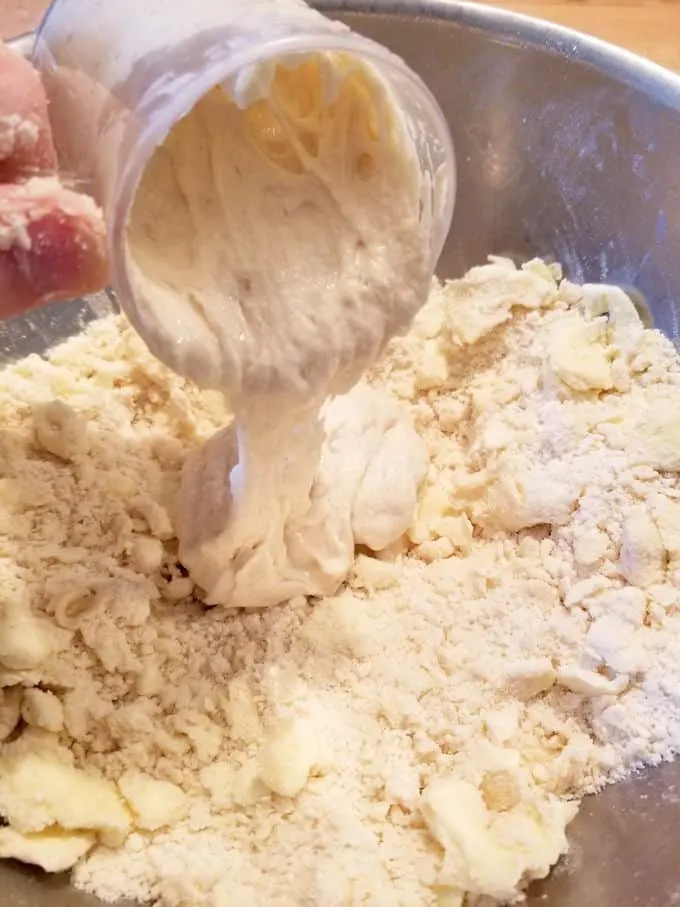
- Add the sourdough discard to the flour/butter mixture.
- There is no other water in the crust other than the water in the starter.
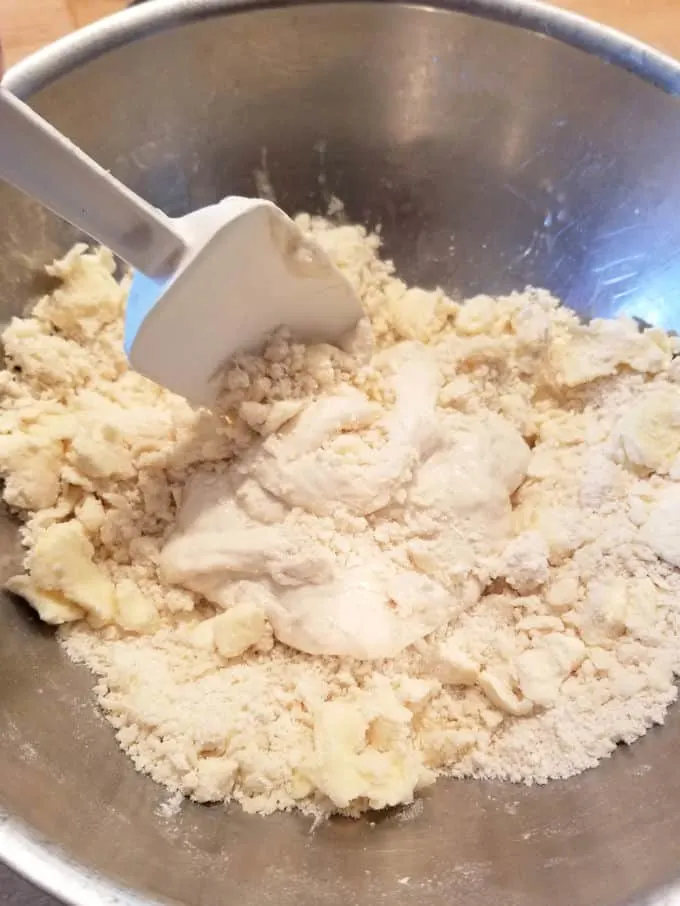
- Mix with a spatula until the dough starts to come together.
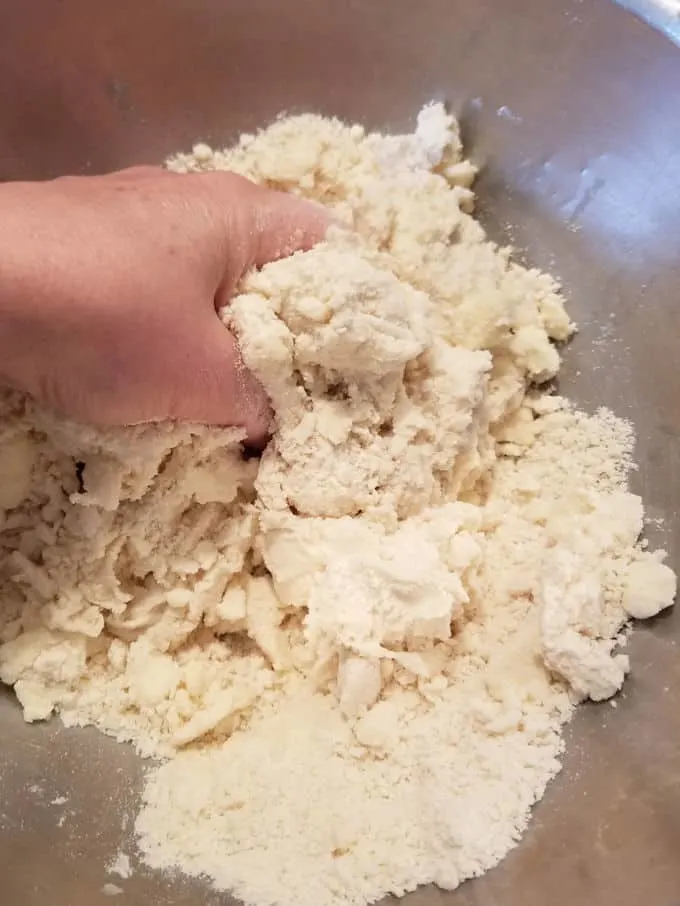
- Use your hands to gather the dough together until the all the loose flour is mixed in.
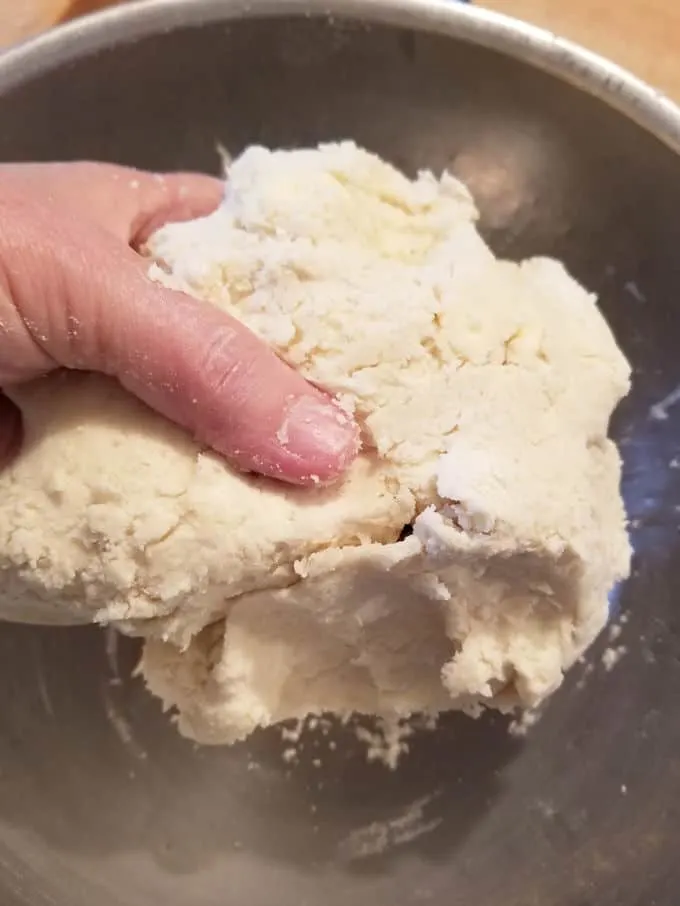
- Gather the dough into a “shaggy” mass.
- Do not knead, just gently gather the dough together.
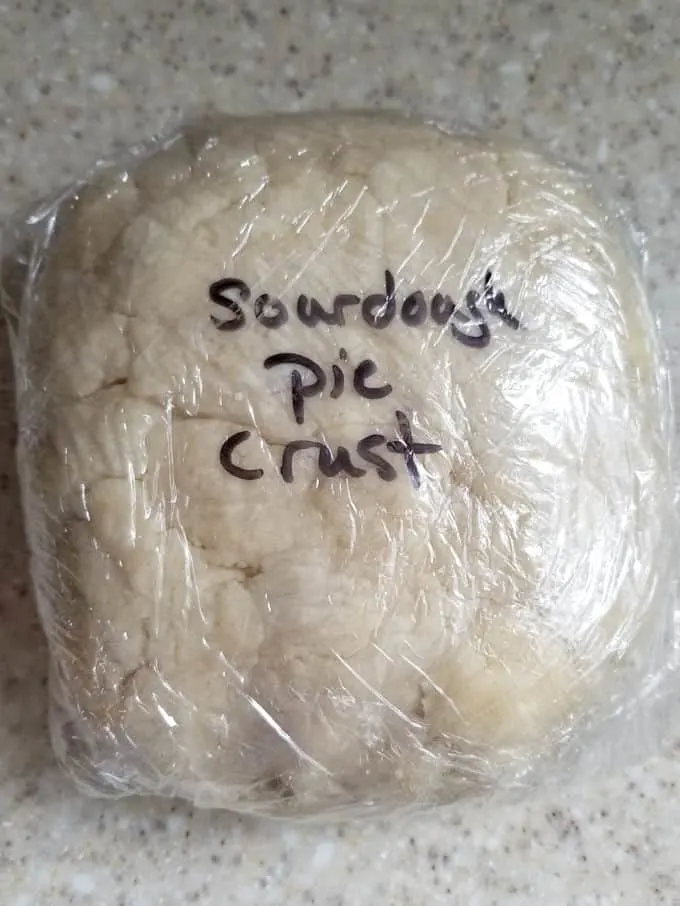
- Wrap the dough and refrigerate for several hours or over night before rolling.
- This will give the flour time to absorb the water in the dough.
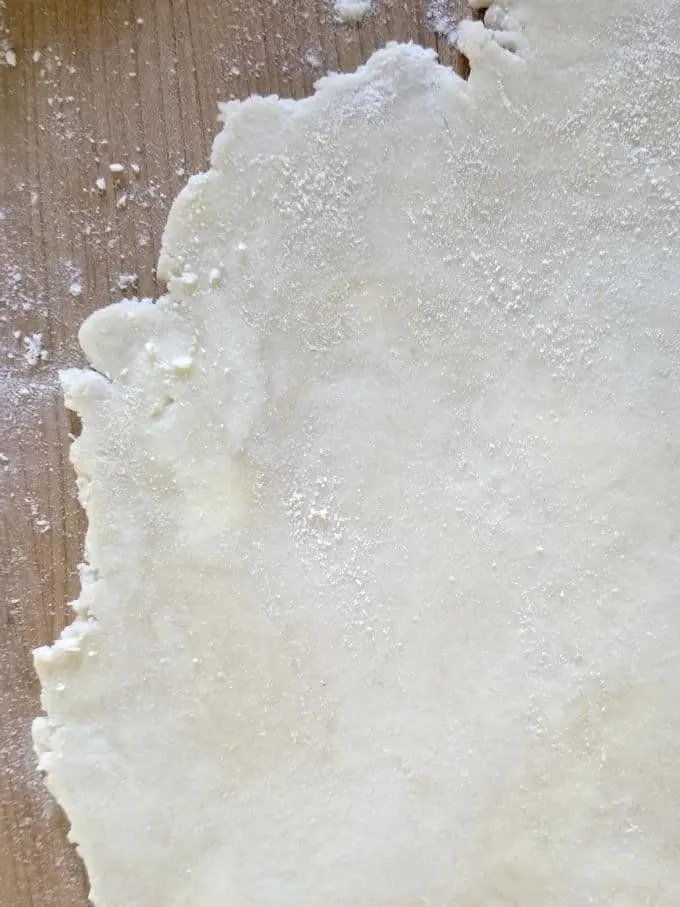
- The bits of butter and a little lift from the starter will help form the flakes.
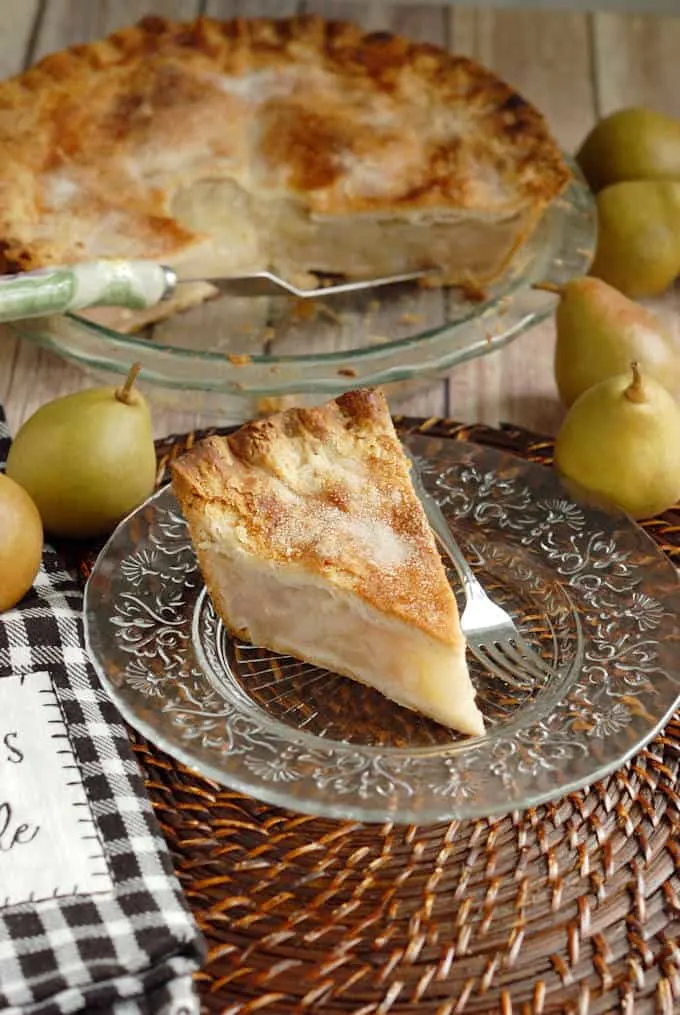
I used Sourdough Pie Crust to make a sensational Vanilla Pear Pie and the best Chicken Pot Pie ever.
I know you hate to throw away that sourdough discard. Check out these recipes that use sourdough discard.
If you love this recipe as much as I do, I’d really appreciate a star rating and a quick comment. Ratings and comments help my recipes show in search results. Thanks!
Sourdough Pie Crust
Ingredients
- 7 ½ oz all purpose flour (1 ½ cups (see note))
- 3 ½ oz cake flour (⅔ cup)
- 1 teaspoon salt
- 1 tablespoon granulated sugar
- 4 oz vegetable shortening (or leaf lard, cold)
- 4 oz unsalted butter (very cold and sliced into ¼" thin slices)
- 8 oz sourdough discard (1 cup (100% hydration))
Instructions
- Combine 7 ½ oz all purpose flour, 3 ½ oz cake flour, 1 teaspoon salt and 1 tablespoon granulated sugar. Whisk together to mix the ingredients evenly.
- Using your fingers, 4 oz vegetable shortening into the flour mixture until it resembles coarse corn meal. Using your fingers, toss 4 oz unsalted butter into the flour mixture. Allow the slices of butter to break up into slightly smaller pieces into the flour. Work quickly so the butter doesn't get warm. Don't break the butter down completely. There should be some large flakes remaining.
- Pour 8 oz sourdough discard onto the flour all at once and toss to combine. Gently press the dough just until it comes together. It will look a little dry in spots. The moisture will redistribute in the dough as it rests.
- Wrap the dough and refrigerate for at least 2-3 hours before using.
Would you like to save this recipe?
As an Amazon Associate and member of other affiliate programs, I earn from qualifying purchases.

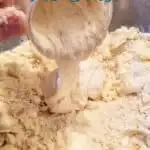
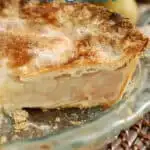
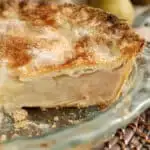




Hi! How long should the pie crust cook in the oven and on what temperature?
It depends on how you’re using it. Bake it according to the directions of the pie you are making.
I’m also curious about the bake time, i want to make a cranberry curd pie and don’t want to overbake it! It sets in 10 min at 350
The bake time will depend on what type of pie you make. If you are baking an empty crust it will bake much more quickly than if it is filled with fruit. Follow the baking time for whichever recipe you are using for the filling.
My sourdough starter is different. It is a potato flake starter and is more liquid than yours. How would I adapt this recipe to use it? I hate to throw it away if it can be used for other recipes!
Figure out how much water is in 8 oz of starter and adjust accordingly. My 8 oz of starter includes 4 oz of water. So if your starter would have 6 oz of water maybe use a bit less than the recipe.
Thank you! I just poured the starter in until I got to the desired texture. The crust was wonderful on my Tomato Tart!!
Perfect.
Hi… Do I need to half
bake the pastry first before putting in the fillings
Depends on the filling. If it’s something that need to cook (like a fruit filling) you can put it into the unbaked crust. If the filling is already cooked (like chicken stew for chicken pot pie) you can prebake the bottom crust.
Sounds amazing & I would love to make a apple pie or a fruit pie of some kind with this recipe, however I have a important question, surprised nobody asked already , is the starter supposed to be fed or unfed and if Fed how long prior to using it to mix this crust up?
Thanks
When the ingredient says “sourdough discard” that means it a starter that hasn’t been fed. “Discard” means the portion of the starter that you would throw away when you need to feed the starter.
Do you warm the dough after it has been refrigerated for hours? My first try was rested in the fridge overnight for 12 hours and came out like a brick. Second try, I refrigerated for 1 hour, still a brick, warmed it another hour. Still kind of a brick.
I’ll often chop the dough into chunks and smush it up a bit to soften enough to roll. Just be careful not to let the butter melt or you’ll loose the flakes. Also, if you form it into a not too thick disc before refrigerating it’s a little easier to work with than if it’s a thick brick.
I am so excited to try this recipe for tomorrow, and just wanted to suggest for others who might be reading comments and thinking about this for the holidays: grate the pie crust into the pie pan. Once it’s all grated, use your fingers to press it into shape in the pan. The technique has been heralded as the best way to keep the flakiness of the pie crust (as seen in New York Times Cooking), and is perfect for this, as it’s meant for cold dough. If you’re doing a two-crust pie, leave the other crust out while you grate the first into the pan, and it should be soft enough to roll out by the time you’ve finished pressing the grated crust into the pan. I’m making this this afternoon and putting into the fridge for tomorrow (I’ll let it sit for an hour out and refrigerate for 14 hours), since my sister (like the reader above) is sensitive to gluten but does very well with sourdough/fermented wheat. Thank you so much for this recipe!
I haven’t tried the grating technique. My only concern would be a using your hands to press the bits into the plate might warm the dough up too much. Just be careful not to over handle the dough to the point the fat melts out.